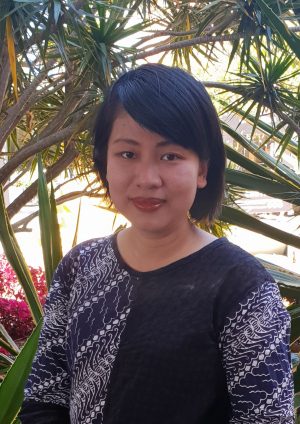Rachma Indah Nurbani

MA Rural Development (University of Rome)
BA Econ (University of Indonesia)
Economic and social wellbeing, gender equality, economic policy, behavioural economics, political economy,
Biography
Rachma is a PhD scholar at the Bankwest Curtin Economics Centre and the Women in Social Economic Research Cluster (WiSER).
Prior to arriving at Curtin University, Rachma was a researcher at the SMERU Research Institute, an important think tank in Indonesia. Previously, she worked for the National Development Planning Agency of Indonesia. Rachma’s initial training was in economics at the University of Indonesia. She then earned a master’s degree from the Faculty of Business and Economics at the University of Rome, La Sapienza, in Italy.
Having quantitative background, Rachma has a growing interest in learning qualitative methods, and proven expertise in using both quantitative and qualitative mixed methods approach in research projects where she has been involved, covering the area of child poverty and wellbeing, food and nutrition security, crisis and economic shock impact on poor and vulnerable group, government budget, unpaid care work, gender dimension of poverty, and inequality.
Rachma has been awarded 2019 WiSER scholarship and proposing research on intrahousehold dynamics and child wellbeing. Her acquaintance with the issues developed through a series of research works on ‘Life in A Time of Food Price Volatility’ and on ‘Unpaid Care Work in Indonesia’ she conducted with SMERU and the Institute of Development Studies, University of Sussex, United Kingdom.
She attended the ‘Care Advocacy’ workshop and the launch of the United Nations Special Rapporteur report on unpaid care work, poverty, and women’s human rights in the United Kingdom in 2013, and an OECD IdeaFactory Session about elderly in 2014, and found that this area of research resonated with her and decided to focus her research in this area given the topic is relatively untouched in global South, particularly in Asia.
